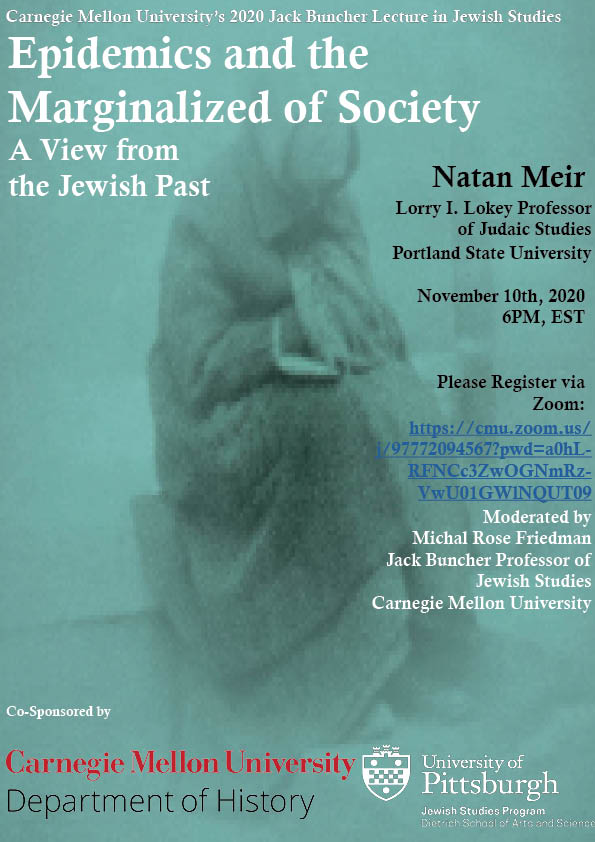
Epidemics and the Marginalized of Society
By T. Chirovsky

The History Department invites you to participate in a virtual event, featuring speaker Natan M. Meir, Lorry I. Lokey Professor in Judaic Studies at Portland State University.
November 10, 2020: 6:00-9:00pm
Please pre-register for the event here.
During times of pandemic, societies often seek a scapegoat: sometimes in a foreign enemy, sometimes among their own marginalized groups. In nineteenth-century Eastern Europe, a peculiar magical ritual emerged in which Jewish communities married their most vulnerable and marginalized members—orphans, beggars, and people with physical and cognitive disabilities—to each other in a wedding held in the town cemetery. What was the meaning of this ritual? Why was a wedding in a cemetery considered an efficacious remedy for cholera and other diseases? This talk considers whether Jewish society's outcasts served as a scapegoat during times of catastrophe such as epidemics.
Natan M. Meir is the Lorry I. Lokey Professor of Judaic Studies in the Harold Schnitzer Family Program in Judaic Studies at Portland State University. A scholar of the social and cultural history of East European Jewry, he is the author of Kiev, Jewish Metropolis: A History, 1859-1914 (2010) and Stepchildren of the Shtetl: The Destitute, Disabled, and Mad of Jewish Eastern Europe, 1800-1939 (2020)